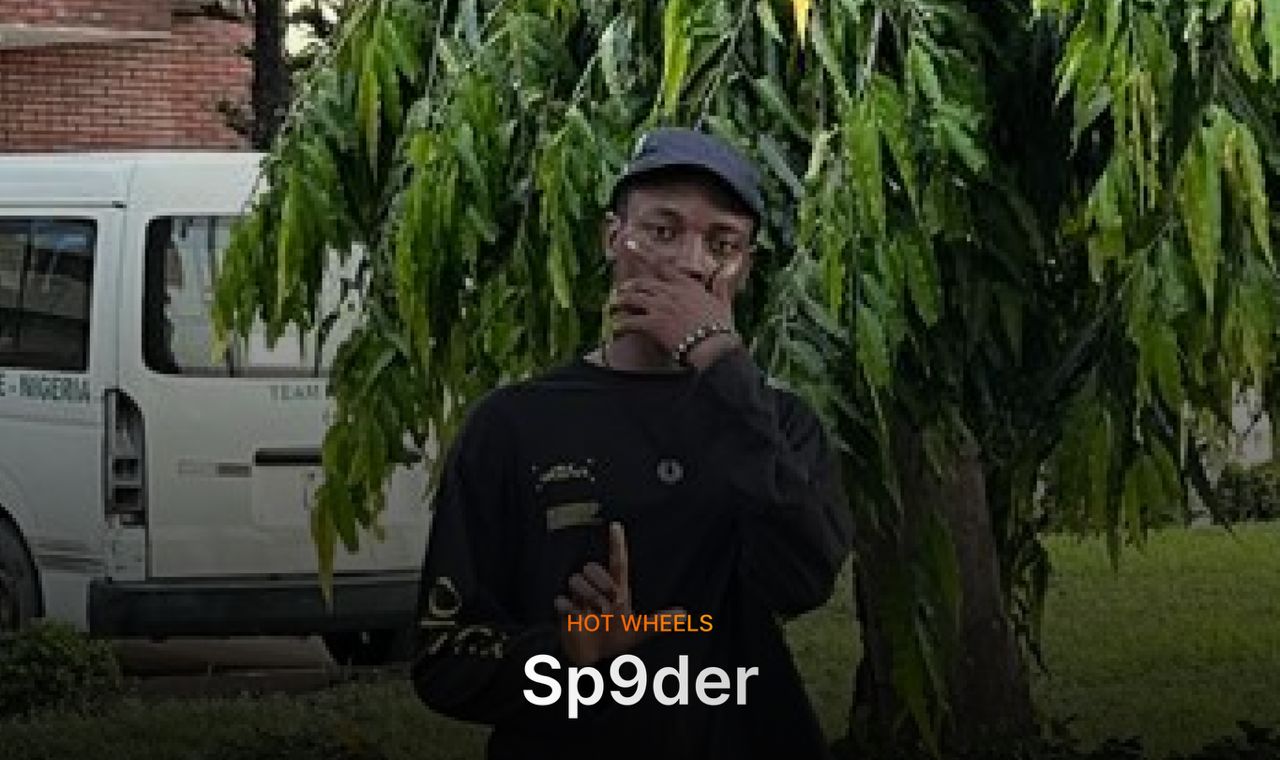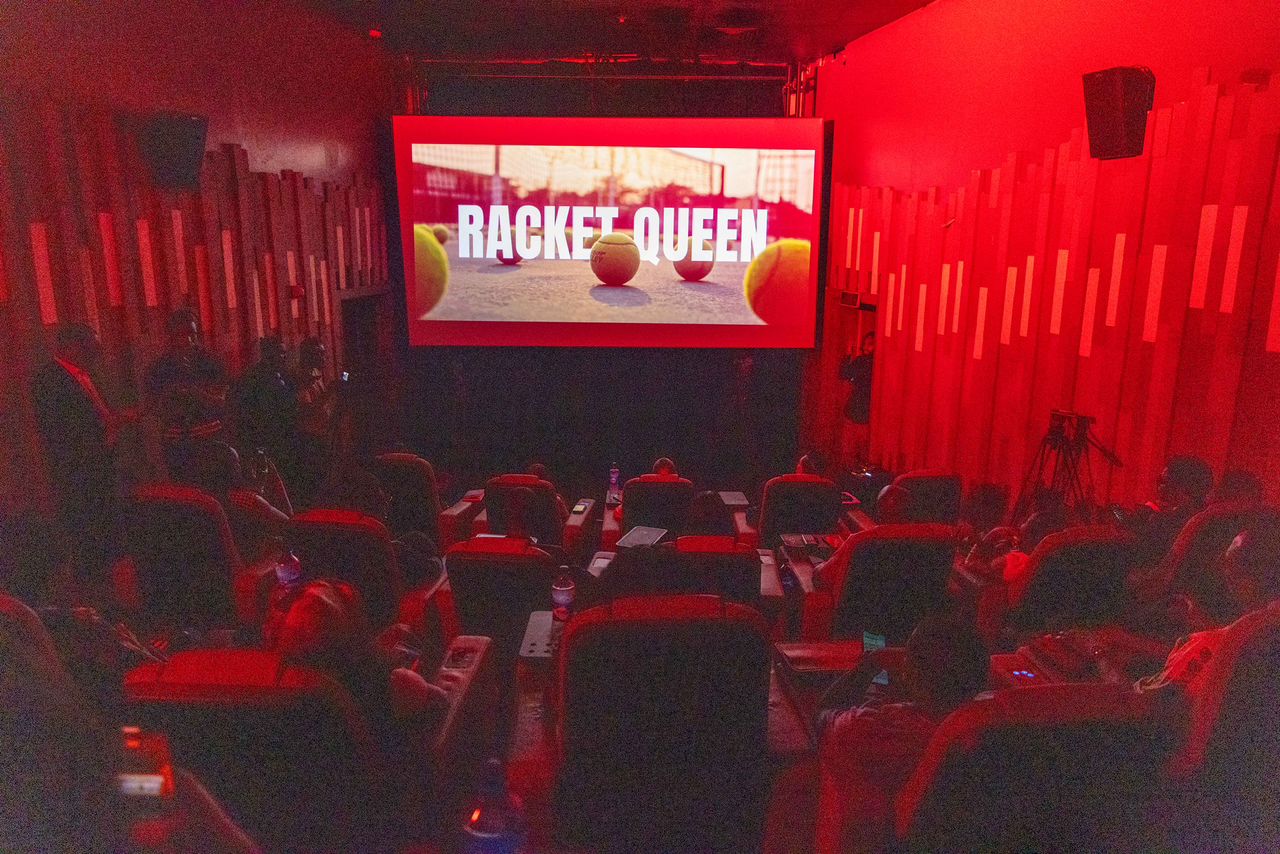Something Sweet has been met with warmth and enthusiasm since its release, and director Dika Ofoma is still basking in its glow. The romantic short, part of Zikoko’s anthology project, bears his signature sensitivity — tender, deliberate, and attentive to the quiet magic between people. But while Ofoma is no stranger to making intimate stories, Something Sweet marks his foray into happy endings and a moment where he leaned fully into trusting his casting instincts.
From the very first draft, he could see Michelle Dede and Ogranya as his leads, confident they could carry the film’s emotional core. In this conversation, he reflects on adapting a true story into a rom-com, building believable intimacy, and the kind of romance he finds truly “something sweet”.
Something Sweet is based on a true story, yet it unfolds with such ease and charm. What drew you to this particular story, and what was the process of adapting it into a rom-com?
Dika Ofoma: I shot the film in late February or early March, and from the moment the story was assigned to me, I was excited about it. That gave me a strong sense of their dynamic, but I also wanted the freedom to tell it in my own way.
I’d adapted from source material before, so I knew the balance I needed: stay true to the heart of the story but shape it so it’s still mine. This one was loosely based on their experience, but the core — the emotional truth — stayed intact.
From the very beginning, the feedback was positive. Even before casting was locked, the producers were on board. When I sent the script to Michelle, she was excited and sent back notes almost immediately, pointing out moments she loved. By the time we did the table read, the actors already felt connected to the material. It was one of those projects where you could feel the energy align early on.
The dynamic between Leke and the older woman feels both tender and unexpected. What went into developing their intimacy and making it believable on screen?
Dika Ofoma: It started from the page. I wanted their interactions to feel honest. If the audience couldn’t believe in them as people, nothing else would work.
We had a table read that also acted as a mini rehearsal. Michelle suggested meeting with Ogranya before filming, and they made that happen. That gave them time to talk, interact, and build a rapport away from the set.
By the time we started shooting, they were already comfortable around each other. That familiarity is what you’re seeing on screen. It’s in the small touches, the way they read each other’s cues. I think that early connection was crucial in making the intimacy feel organic instead of forced.
Leke is such a unique rom-com character – shy, awkward, but emotionally open. How did you approach writing him, especially as someone who can yearn without being creepy?
Dika Ofoma: I tapped into something I genuinely believe: if you like someone, tell them. The worst they can say is no. I’m pretty direct in my friendships and romantic pursuits; there’s no point in beating around the bush. That’s how I approached Leke.
Yes, he’s shy and awkward, but he’s also forthright. He says, “I like you, and I think you like me,” and that’s it. There’s no mind game, no manipulation. I wanted him to be someone whose yearning comes from a place of honesty and vulnerability, not possession.
In many ways, that’s me on the page. I’ve always felt that if you keep holding it in, the moment will pass you by and you might never get it back. That’s the ethos behind him.
There’s a real softness to how the age gap is handled; it’s not scandalised, it’s just sweet. What made you place these two characters side by side, and how did you work with the actors to build that chemistry and quiet tension?
Dika Ofoma: I wrote with Michelle Dede and Ogranya in mind from the very start. I didn’t have a backup plan. For me, casting is instinctive; the same way I can see the visual look of a scene, I can see the actors who belong in it.
From the directing side, I gave Ogranya a specific note: whenever Michelle is in a scene, always keep your eyes on her, even when she’s not speaking. Look for her with your eyes. That one choice does a lot of heavy lifting in terms of intimacy.
In key moments, like the garden scene and the final scene, I choreographed his movements line by line. In the garden scene, he inches closer with each line; when she pulls away, he still holds her hand. In the final scene, the earnestness in his eyes and the size of his smile when she turns back were exactly what I’d hoped for. We did a few takes until it felt right, and when we finally nailed it, some of the crew actually clapped.
Casting him wasn’t just about being a “fine man”, though, of course, that doesn’t hurt. I needed someone unafraid of vulnerability, and Ogranya brought that in spades.
As a filmmaker, what rom-coms or romantic moments have inspired your storytelling? Were there any specific references that shaped Something Sweet?
Dika Ofoma: I’m drawn to love stories where people are direct about their feelings. Atonement has a scene where Keira Knightley says to James McAvoy, “Come back to me,” and it’s so simple but so loaded. I also love Normal People for how emotionally open it is.
In Nollywood, Wind of Glory has one of my favourite romantic moments. The female lead (Genevieve Nnaji) regains her sight and realises that the man who helped her —Desmond Elliot’s character—had been caring for her all along. The way that scene plays out, the lines they exchange… it’s beautiful.
These references weren’t things I consciously mirrored in Something Sweet, but they’ve shaped my sensibility over time. They live in the background of how I write and direct love.
Zikoko’s anthology creates space for offbeat, everyday stories. How did being part of this project influence your approach to tone, pacing, or even risk-taking?
Anita Eboibwe, the creative lead, trusted me. There was a story guideline, but I deliberately didn’t read it until after my first draft because I didn’t want to be boxed in.
When I finally read it, I realised the script already delivered what they wanted — women-centred, entertaining, and thoughtful. They gave feedback where needed, but there was no micromanaging.
It was the first time I’d worked within a larger body’s framework while still keeping my voice fully intact. The tone stayed slow-burn, like much of my work, but this one has a happy ending — because it’s a rom-com, and I believe in letting love win.
What’s your idea of “something sweet” in a romantic sense?
A romance that feels easy, even in conflict. One where respect and care remain, where even during disagreements you protect each other’s dignity.
In Something Sweet, even when there’s misunderstanding, the characters don’t hurl hurtful words at each other. That’s important to me; conflict should test a relationship, not destroy it. If you can handle those moments with maturity and still care for each other, that’s something sweet.





